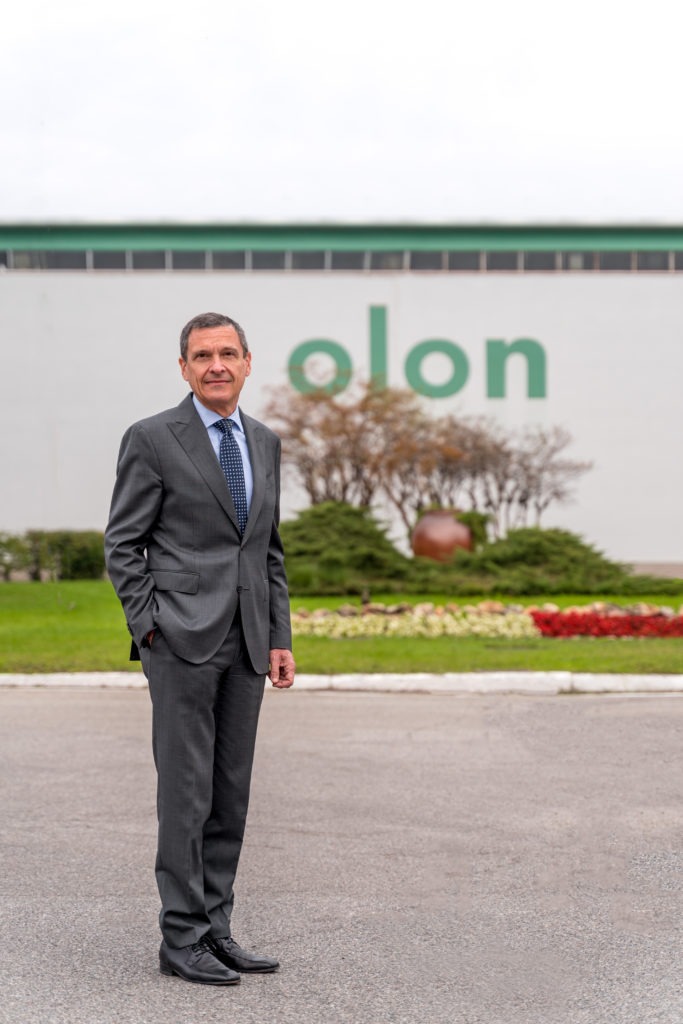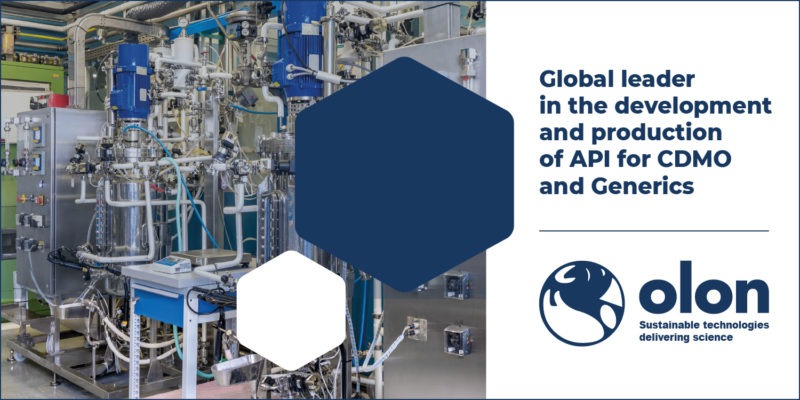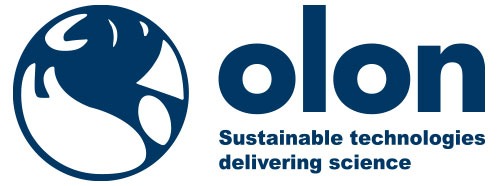Olon and Particle Engineering
Olon, a leading international API supplier, is promoting a strong internal focus on the physical form of the API. Today, the chemical quality of the API also involves analyzing and developing its most advanced physical characteristics.
The global market for pharmaceuticals has expanded significantly during the last few decades. Most pharmaceutical products developed over recent years are characterized by low solubility and low absorption. For this reason, to guarantee sufficient and reproducible bioavailability, new and technologically advanced formulations were studied and developed.
All these new formulations require well-defined and consistent physical quality attributes to guarantee the right absorption of the active pharmaceutical ingredient (API) throughout the whole life of the product. In addition, many new drugs for respiratory disease are now administered as solid dispersions via high technological inhalers. In these latter cases, consistent physical quality of the API is not only required, but these special technologies require the use of nanoparticles or microparticles with a very narrow size distribution. All these new physical form requirements can only be reached via a particle-engineering approach.
In the past, the quality of APIs was strictly related to their chemical quality, particularly the absence of specific organic or elemental impurities. However, the recent evolution of pharmacological research has resulted in a shift of new APIs, particularly new anticancer products, toward Class II and Class IV in the Biopharmaceutical Classification System (BCS), which are characterized by low solubility. Well-designed physical forms, particularly with reproducible and very low particle-size distribution could enhance solubility and, therefore, their absorption, with the use of absorption enhancers in the formulation in some cases.
“This evolution has translated into a rapt internal focus on the physical form of the API. Today, we no longer study and analyze its chemical quality alone, though this remains essential, this is joined by analyzing and developing its physical characteristics,” explains Paolo Tubertini, CEO at Olon Group.

“In the past, the spectrum of physical qualities was limited to polymorphism, but now we are creating the skills to develop dimensions and the ideal form of the molecule so that our pharmaceutical partners can achieve the finished product more quickly, with the highest quality standard in terms of absorption, among other things,” he says. “In other words, we are specializing in particle engineering for maximum control of the finishing phase, thus guaranteeing maximum precision in reproducibility of the physical characteristics, especially for poorly soluble substances.”
This particle-engineering approach is a specific task that overlaps the skill and knowledge of both the API producers and the API formulators. For this reason, to avoid any misunderstanding and to guarantee time- and cost-efficient development of new APIs or new formulations, the two actors should speak the same language. While this expertise was already present in the API–formulator team or providers, this was not the case in the API-producing companies.
For this reason, providers with a strong affinity for leadership and innovation are following and supporting this market trend through investments in research that translates into providing internal skills that benefit customers.
With this full interpretation of the role of pharmaceutical companies as strategic partners, as a key point along the development, production, and global supply of APIs, Olon launched in 2021, as part of its Innovation Initiative, a wide-reaching internal program to explore new technologies or new applications of known technologies in a structured manner, Olon has set out on an internal path to create a genuine center of excellence dedicated to particle engineering, namely purchasing advanced equipment and instruments that make it possible to identify, obtain, and reproduce the ideal physical characteristics of the API molecule, thereby providing characteristics with a level of definition and precision never achieved before.
This will allow the new team to monitor each phase of drug development, optimize the physical form of the new API during clinical development, and support new applications/formulations of known drugs—even generic drugs. The team will interact with our customers’ researchers and possibly with their contractors when developing the formulation.
“The past and present investments at Olon, which include laboratory systems to model the particle size of the specific product, for example, different mills, micronizers, spray dryers, wet mills and so on, will allow us to offer maximum flexibility and support to the customer, even in the initial phase of API research. This flexibility will allow us to develop the same product in different particle sizes and relative physical characteristics,” says Giorgio Bertolini, Senior Vice President Olon R&D. “We are also expanding our analytical skills for application to the widest range of quality attributes in order to have greater control over the quality and physical characterization of our products.”
“The installation of this new equipment in high-containment systems, such as glove boxes, will mean that we can also carry out these studies on highly potent products, such as respiratory and cancer drugs, which constitute categories of compounds requiring a more targeted control of the physical form of the API while preventing our operators from being exposed to the dust of the API being studied and to avoid any risk of cross-contamination,” he says.
The knowledge developed through the particle-size engineering approach in this first phase of API development, with the selection of the right technology, the identification of the critical parameters for the physical quality of the API, and the reproducibility of the process, will guarantee a smoother and easy scale-up of the finishing processes of the API in large scale.
In addition to the investment for this development team on particle engineering, Olon has also invested, and it is still investing in large-scale equipment, such as new micronizes and spray dryers to complete the manufacturing level offering by Olon for the production of the desired highly technological physical form of the API with reproducible and reliable processes.




